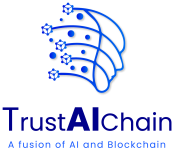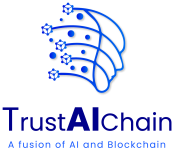
Identity management and verification have emerged as critical components in the digital age for safeguarding user authenticity, preserving data privacy, and securing online transactions. The need for more robust identity verification is growing due to the rapid growth of technology, rendering existing approaches inadequate. It has opened the door for creative solutions that transform identity verification and management by utilizing the potential of cutting-edge technology like blockchain and artificial intelligence (AI).
This blog article explores the revolutionary effects of these technologies on identity management and verification, providing a look into a future where digital security is reliable and easy to use.
ÂThe Difficulty of Verifying Digital Identity
Accurately confirming and maintaining identities online has gotten more complicated as digital interactions and transactions become commonplace. The increasing prevalence of identity theft, data breaches, and cybersecurity risks exposes the weaknesses in traditional verification techniques. Conventional systems frequently rely on physically held papers that can be challenging to verify remotely or easily obtained data like passwords and security questions. In response, the digital era requires a more safe, effective, and dependable approach to identity management and verification.
Blockchain Technology and AI’s Potential to Revolutionize Identity Verification
AI: Increasing Precision and Effectiveness
 Â AI alters identity verification by providing automated, intelligent systems that can swiftly and reliably analyze large volumes of data. AI-powered verification systems use machine learning algorithms to identify trends, spot abnormalities, and make conclusions instantly. AI, for instance, increases the security and dependability of biometric verification techniques like fingerprint and face recognition, reducing the possibility of fraud and impersonation. Additionally, AI can continuously learn from and adjust to new security threats, making identity verification procedures resilient to ever-evolving cyberattacks.
 AI alters identity verification by providing automated, intelligent systems that can swiftly and reliably analyze large volumes of data. AI-powered verification systems use machine learning algorithms to identify trends, spot abnormalities, and make conclusions instantly. AI, for instance, increases the security and dependability of biometric verification techniques like fingerprint and face recognition, reducing the possibility of fraud and impersonation. Additionally, AI can continuously learn from and adjust to new security threats, making identity verification procedures resilient to ever-evolving cyberattacks.
Blockchain: Providing Privacy and Security
 Blockchain technology creates a safe, unchangeable ledger of user identities and transactions, providing a decentralized method of identity management. Blockchain reduces the danger of data breaches by doing away with a single point of failure and storing identification data across a network of computers. Blockchain also enables the development of self-sovereign identities, in which people are in charge of their identity data and can share it selectively and securely. It improves privacy while making identity verification easier for different services.
Blockchain technology creates a safe, unchangeable ledger of user identities and transactions, providing a decentralized method of identity management. Blockchain reduces the danger of data breaches by doing away with a single point of failure and storing identification data across a network of computers. Blockchain also enables the development of self-sovereign identities, in which people are in charge of their identity data and can share it selectively and securely. It improves privacy while making identity verification easier for different services.
Â
The Blockchain and AI Synergy

Blockchain technology and AI work together to maintain and verify identities in a very synergistic way. Blockchain provides a transparent and secure data storage option enhanced by AI’s rapid data processing and analysis capabilities. Combined, they provide a system that is effective, user-friendly, and resistant to fraud and tampering with identity verification. For example, blockchain assures that the data used for identity verification is accurate and tamper-proof. At the same time, AI can instantly evaluate the data stored on a blockchain to verify identities in real-time.
The Future of Identity Verification and Management
Future identity management and verification using AI and blockchain technology promises a smoother and safer online experience. We anticipate these technologies will be widely used in various industries, such as government services, healthcare, and finance. It would simplify and lessen the invasiveness of identity verification procedures, increasing security and privacy while improving user experience.Â

In summary
New digital security and privacy benchmarks are being established by the revolution in identity management and verification driven by blockchain and artificial intelligence. These technologies provide a glimmer of optimism as we traverse the intricacies of the digital world and safeguard digital identities in the face of growing cyber threats. The digital identity of the future will be user-controlled, decentralized, and secure, which is a big step in the right direction toward a safer digital ecosystem.
Â







